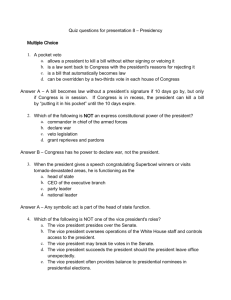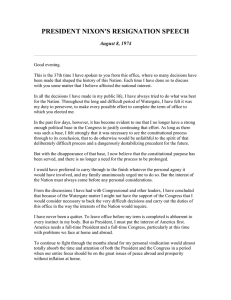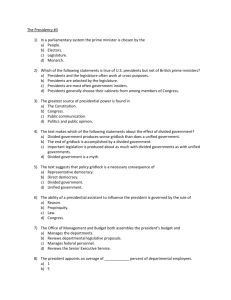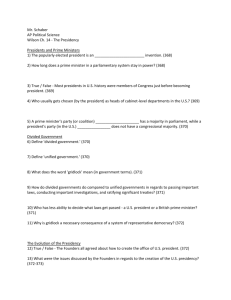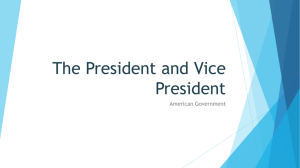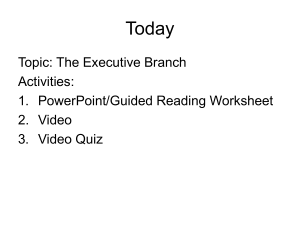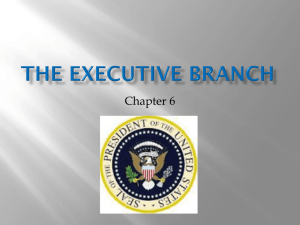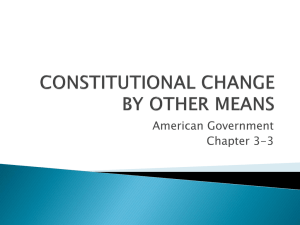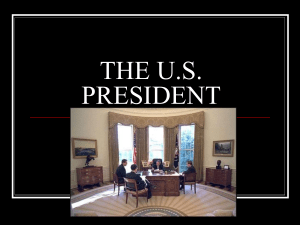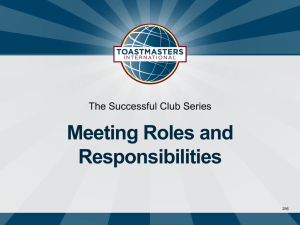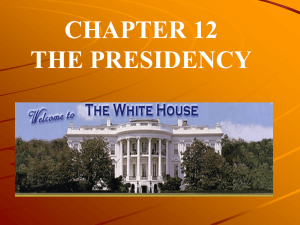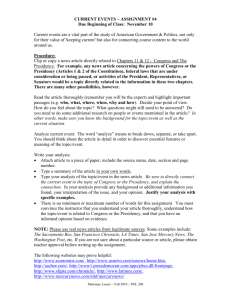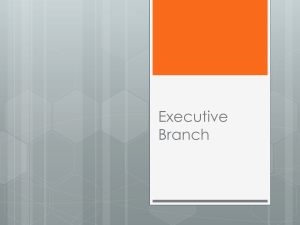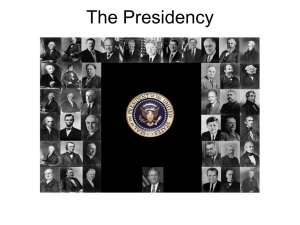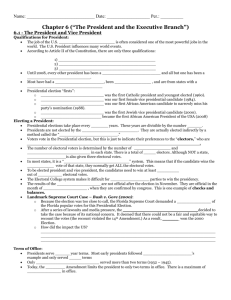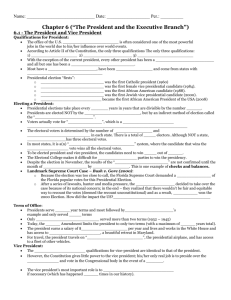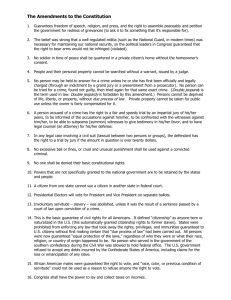Quiz questions for presentation 8 * Presidency
advertisement
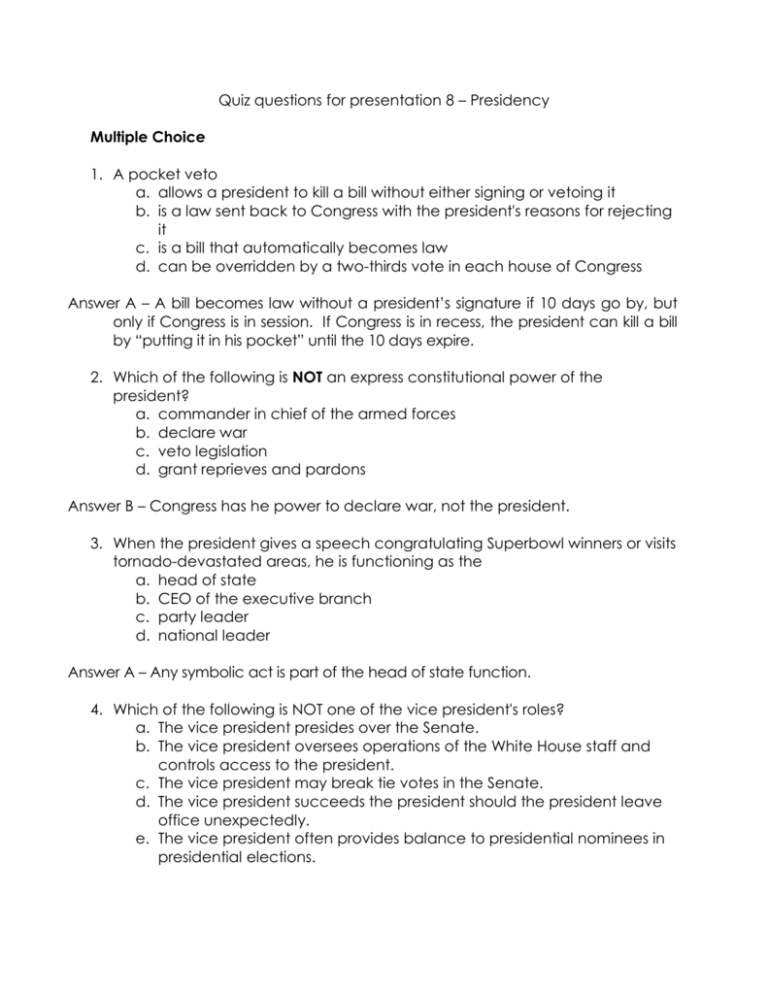
Quiz questions for presentation 8 – Presidency Multiple Choice 1. A pocket veto a. allows a president to kill a bill without either signing or vetoing it b. is a law sent back to Congress with the president's reasons for rejecting it c. is a bill that automatically becomes law d. can be overridden by a two-thirds vote in each house of Congress Answer A – A bill becomes law without a president’s signature if 10 days go by, but only if Congress is in session. If Congress is in recess, the president can kill a bill by “putting it in his pocket” until the 10 days expire. 2. Which of the following is NOT an express constitutional power of the president? a. commander in chief of the armed forces b. declare war c. veto legislation d. grant reprieves and pardons Answer B – Congress has he power to declare war, not the president. 3. When the president gives a speech congratulating Superbowl winners or visits tornado-devastated areas, he is functioning as the a. head of state b. CEO of the executive branch c. party leader d. national leader Answer A – Any symbolic act is part of the head of state function. 4. Which of the following is NOT one of the vice president's roles? a. The vice president presides over the Senate. b. The vice president oversees operations of the White House staff and controls access to the president. c. The vice president may break tie votes in the Senate. d. The vice president succeeds the president should the president leave office unexpectedly. e. The vice president often provides balance to presidential nominees in presidential elections. Answer B – The White House chief of Staff controls access to the president, and is thus often seen as more powerful than the Vice President. 5. Presidents use executive orders to A. replace treaties. B. make national policy. C. hide information from Congress. D. force Congress to disclose information. Answer B – The president can order the executive branch to do things without waiting for Congress to pass a law, so long as the order does not conflict with existing law. Essay Question Given the immense list of duties for a president listed in the text, and our heightened expectations, is it possible for one human being to actually have a successful presidency? Discussion Questions VP Power Al Gore was given more real power than almost any previous Vice-President under Clinton when he was given the task to pare down the size of the Federal Government and trim unnecessary and wasteful programs, a task he worked at successfully and with little fanfare throughout the eight years he held that office. Vice-President Cheney was given even more power by Bush, taking on presidential roles crafting policy and legislation in energy and defense, engaging publicly in policy debates with other White House and Cabinet officials, even publicly contradicting and undermining the President in some areas like gay marriage. While the cartoons depicting Cheney as the puppetmaster of Bush are overblown, he clearly has been the most powerful VicePresident in history. Biden’s role in the Obama administration seems to be more of an advisor. He has taken some foreign trips (usual VP fare) and provided comic relief (also a common VP role). In spite of Biden’s apparent return to the pre-Clinton norm for VPs, there is a clear trend toward the VP office being more than a caretaker post. My question is: are there any advantages or disadvantages to making the vice presidency a more visible and active role? The Imperial President How do we give the president enough power to for him to carry out his responsibilities effectively without giving him the potential to abuse his power? Links The White House http://www.whitehouse.gov Scholar's ranking of US Presidents http://en.wikipedia.org/wiki/Historical_rankings_of_U.S._Presidents
